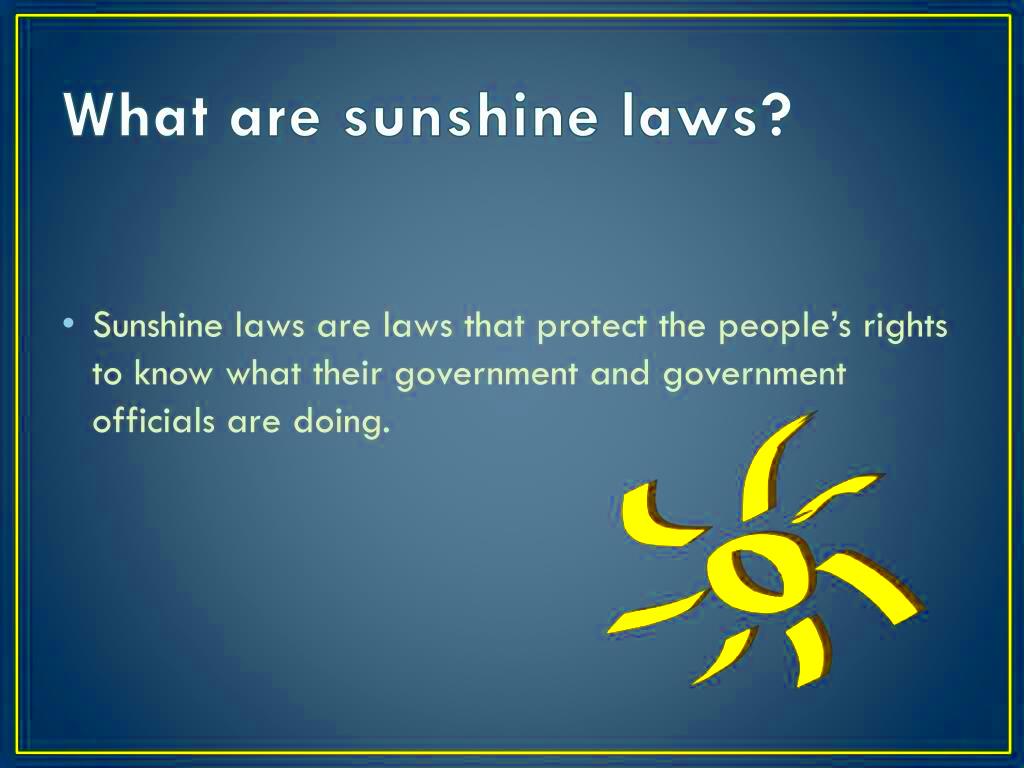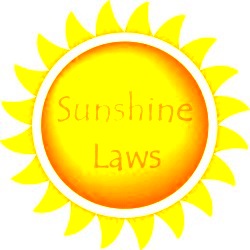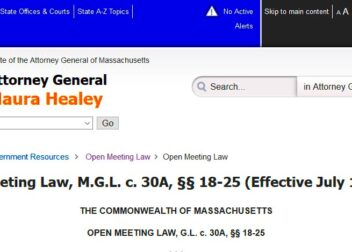Pennsylvania Sunshine Law: Transparency in Government
The Pennsylvania Sunshine Law is a crucial piece of legislation designed to ensure transparency in government operations. By mandating that certain meetings of government agencies be open to the public, the law allows citizens to see how decisions affecting their lives are made. This law plays a vital role in maintaining accountability and public trust. Understanding its importance and how it functions helps ensure that the public remains informed and engaged in the democratic process.
Key Provisions of the Pennsylvania Sunshine Law

The Pennsylvania Sunshine Law contains several key provisions that outline when and how government meetings must be open to the public. Some of the most important provisions include:
- Open Meetings: All meetings involving agency decision-making or policy discussions must be conducted in public unless they meet certain exceptions.
- Advance Notice: Agencies are required to provide advance notice of meetings, usually through postings and official publications.
- Public Participation: The law guarantees the public’s right to attend and comment during specific portions of the meeting.
- Executive Sessions: While most meetings must be public, there are exceptions allowing for closed sessions to discuss confidential matters, such as legal issues or personnel decisions.
- Minutes and Records: Meeting minutes must be kept and made available to the public to ensure a permanent record of what transpired.
These provisions are designed to ensure that government actions are visible and that the public can hold officials accountable for their decisions.
How the Sunshine Law Promotes Government Transparency
The Sunshine Law is a powerful tool for promoting government transparency. By requiring public meetings, it allows citizens to stay informed about the actions of their local and state governments. Transparency through open meetings offers several benefits:
- Accountability: When officials know their decisions are being watched by the public, they are more likely to act in the public’s best interest.
- Trust: Open meetings help build trust between the government and its citizens, reducing the suspicion of closed-door dealings.
- Public Engagement: The law fosters civic participation by giving the public opportunities to express their views directly to officials.
- Informed Decision-Making: Transparency ensures that citizens can access the information needed to understand the decisions that affect them.
Through these mechanisms, the Pennsylvania Sunshine Law strengthens the relationship between government and citizens, making democracy more effective and responsive.
Who is Covered Under the Pennsylvania Sunshine Law
The Pennsylvania Sunshine Law applies to a wide range of government bodies to ensure transparency and public access to decision-making processes. Knowing who falls under this law is essential for understanding when public access is guaranteed. Broadly, the law covers state and local agencies, but its application extends beyond that.
The following groups are typically covered by the law:
- State Agencies: This includes any board, commission, or body that performs a government function, such as state education boards or regulatory commissions.
- Local Agencies: Local government bodies, including city councils, school boards, and municipal planning commissions, must also comply with the law.
- Committees and Subcommittees: Even smaller groups within larger agencies, like committees or advisory boards, are subject to the Sunshine Law if they have decision-making authority or conduct policy discussions.
Notably, private organizations or entities that do not perform governmental functions are not covered under this law. Knowing who is covered helps citizens understand which meetings they have a right to attend and where the law applies.
Exceptions and Limitations of the Sunshine Law
While the Pennsylvania Sunshine Law aims for full transparency, there are certain exceptions and limitations in place to protect sensitive information or maintain the efficiency of government operations. These exceptions allow for closed meetings, known as executive sessions, where specific issues can be discussed in private.
Some of the most common exceptions include:
- Personnel Matters: Discussions about hiring, firing, promotions, or discipline of employees can be conducted privately to protect personal privacy.
- Legal Matters: Meetings involving litigation, legal advice, or confidential legal discussions may be closed to prevent undermining legal strategies.
- Real Estate Transactions: Negotiations on the purchase or lease of property can be done privately to avoid inflating costs through public disclosure.
- Emergency Situations: In cases where immediate action is required to address public safety or security concerns, meetings can be held without public notice.
These limitations are meant to balance the need for transparency with the practical concerns of government functionality. However, agencies are required to provide explanations when meetings are closed under these exceptions, ensuring some level of accountability.
Public Participation Rights Under the Sunshine Law
The Pennsylvania Sunshine Law doesn’t just provide citizens the right to observe government meetings; it also encourages public participation. This law ensures that citizens have a voice in the decision-making process, making government more accessible and responsive to public needs.
Key participation rights include:
- Right to Attend: Any member of the public has the right to attend open meetings of covered government agencies.
- Comment Opportunities: Most public meetings include a portion for citizens to express their opinions, ask questions, or make suggestions on agenda items. The agency must provide reasonable time for public comments.
- Access to Meeting Records: Citizens are entitled to access meeting minutes, agendas, and other records related to public meetings, ensuring transparency even after the meeting ends.
- Challenges to Closed Meetings: If the public believes a meeting was wrongfully closed, they have the right to challenge the agency’s decision, often through the courts.
These participation rights empower citizens to actively engage with their government, ensuring their voices are heard and their concerns addressed in public forums.
Penalties for Violating the Pennsylvania Sunshine Law
Government agencies that violate the Pennsylvania Sunshine Law can face significant consequences. The law includes penalties designed to enforce compliance and ensure that government operations remain open and transparent. If a violation occurs, both the public and the courts have avenues to address the issue.
Some potential penalties and outcomes for violations include:
- Fines: Individuals who intentionally violate the Sunshine Law can be fined up to $1,000 for each offense. This serves as a deterrent against non-compliance.
- Invalidation of Actions: If a public meeting violates the Sunshine Law, any decisions made during that meeting can be declared null and void. This ensures that agencies cannot make secret decisions that affect the public.
- Legal Fees: In some cases, the court may order the agency to pay the legal costs of the plaintiff who brings the violation to light.
- Public Scrutiny: Beyond legal penalties, violating the Sunshine Law can result in a loss of public trust, which can damage the reputation of the government body involved.
These penalties underscore the importance of compliance, encouraging government agencies to follow the law and conduct their business transparently. Citizens can take legal action if they believe an agency has violated the law, ensuring accountability.
Frequently Asked Questions About the Pennsylvania Sunshine Law
Many people have questions about the Pennsylvania Sunshine Law, especially regarding when and how it applies. Below are some frequently asked questions to help clarify key points about this law.
1. Does the Sunshine Law apply to all government meetings?
Not all meetings fall under the Sunshine Law. The law applies to meetings where government agencies are making decisions or discussing public policy. Private discussions or informal gatherings may be exempt unless they involve official action.
2. How can I find out about upcoming public meetings?
Government agencies are required to provide advance notice of public meetings. This notice is usually posted on official websites, bulletin boards, and sometimes in local newspapers.
3. Can a government body close a meeting to the public?
Yes, under certain conditions. Executive sessions, which are closed to the public, are permitted for discussing specific matters such as legal issues, personnel decisions, or real estate negotiations. However, these sessions must meet strict criteria.
4. What should I do if I believe a meeting violated the Sunshine Law?
If you believe a meeting was improperly closed or conducted in violation of the law, you can file a complaint with the court. Legal action can result in penalties or the invalidation of any decisions made during the unlawful meeting.
Conclusion on the Importance of Government Transparency
Government transparency is critical to a functioning democracy. The Pennsylvania Sunshine Law ensures that the public has a front-row seat to government decision-making, reinforcing the importance of openness and accountability. By giving citizens the ability to observe, participate, and challenge decisions, the law strengthens the relationship between government and the people.
When government actions are transparent, trust between citizens and their elected officials grows. This law fosters that trust, ensuring that decisions are made in the public’s best interest. In the end, a transparent government is one that is more responsive, accountable, and democratic, making laws like the Pennsylvania Sunshine Law indispensable for maintaining public confidence in governmental processes.

